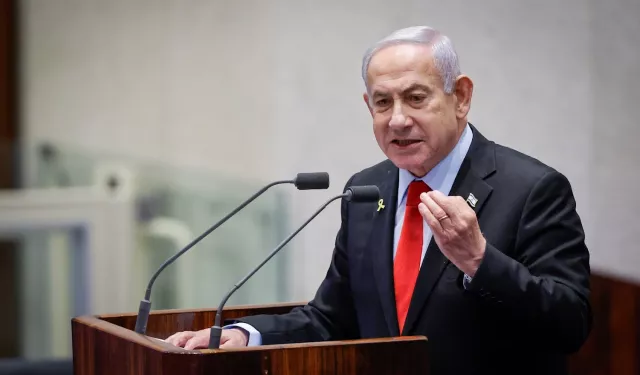Israel’s decision to suspend a $35 billion natural gas export deal with Egypt is a “failed pressure tactic” that risks hurting Tel Aviv more than Cairo, according to two Egyptian experts who spoke to Al Manassa.
Prime Minister Benjamin Netanyahu instructed the freeze amid mounting tensions over Israel’s ongoing genocide in Gaza. But Egyptian diplomats and energy officials said Cairo had anticipated the backtrack and already secured alternative supplies.
“This is political theater for Netanyahu’s domestic base,” Mohamed Abdelwahid, a retired general and expert on regional security, told Al Manassa. “Egypt diversified its gas sources precisely because Israel has a track record of reneging on agreements.”
A source at Egypt’s state-owned gas company EGAS told Al Manassa last Thursday that imports from Israel had already dropped to 950 million cubic feet per day over the past two weeks, down from 1.05 billion in early August.
Regional dynamics
Former diplomat Rakha Ahmed Hassan dismissed the Israeli move as “absurd,” calling it an attempt to coerce Egypt into softening its stance on the assault Gaza, especially its opposition to forced displacement and its calls for an immediate ceasefire.
Abdelwahid argued the decision may have been coordinated with regional actors. “Some Gulf states, fearing Egypt’s rise as an energy hub, may be nudging Israel to disrupt Cairo’s gas strategy,” he said. “And of course, American pressure can’t be ruled out.”
Abdelwahid stressed that Egypt’s reliance on Israeli gas had always been limited, with contingency plans in place. “We aren’t naïve,” he said. “We’ve long assumed Israel would use gas as leverage.”
Indeed, Cairo appears to have already acted. Hassan noted that Foreign Minister Badr Abdelatty and Petroleum Minister Karim Badawi visited Cyprus earlier this week to boost imports from the island.
“Israel produces a lot of gas,” Abdelwahid said. “But without Egypt’s liquefaction terminals, what can they do with it?”
Hassan added the freeze might galvanize other Arab countries to impose reciprocal economic measures. “Imagine if Arab states froze deals with Israel,” he said. “That would shift the balance.”
Energy ties and infrastructure
Egypt had revised its gas agreement with Israel on Aug. 12, increasing contracted volumes by 130 billion cubic meters and extending the deal through 2040.
Gas from Israel is delivered via the 100-km East Mediterranean Gas pipeline from Arish to Asqalan, and through a second route via Jordan.
In June, Israel temporarily halted gas flows to Egypt during the 12-day flare-up with Iran, disrupting local fertilizer production and driving up domestic prices. Supply resumed gradually after June 26.
Netanyahu’s move reportedly came after Egypt deployed additional troops in Sinai, near the Israeli border. Tel Aviv claimed the buildup violated the Camp David Accords, though Israel itself shredded the treaty in May last year by seizing the Philadelphi Corridor during its ground offensive in southern Gaza.
On Saturday, Netanyahu accused Egypt of preferring to “imprison Gazans against their will than let them leave.” He said Israel was willing to open the Rafah crossing to facilitate their departure, but Cairo “immediately blocks them.”
Egypt’s Foreign Ministry condemned the remarks, calling them “a calculated attempt to prolong the conflict and deflect from Israel’s actions in Gaza.”
No appetite for war
Rakha Ahmed Hassan ruled out a military confrontation, saying Egypt would continue using “soft power it hasn’t even begun to employ.”
“Unless Israel goes completely mad, war isn’t likely,” he said, adding that Tel Aviv’s recent destruction of the Rafah crossing amounted to an act of aggression.
Abdelwahid underlined the contradiction in Egyptian-Israeli relations: close military coordination alongside increasingly hostile rhetoric.
He said Netanyahu is testing Egypt’s red lines, particularly over displacement and control of the Philadelphi Corridor. Yet he does not believe Egypt will resort to war.
“Expect more troops in Sinai, staunch refusal of any displacement, and intensified diplomatic pressure,” he said. “The US role remains critical in preventing escalation.”
State Information Service head Diaa Rashwan said in a televised interview that Egypt had backup energy plans and dismissed Netanyahu’s gas threats as self-defeating.
“Let him cancel the agreement if he dares,” Rashwan said. “He’ll lose more than we will.”
He added that Cairo’s refusal to accept the displacement of Gazans has enraged Netanyahu and the Israeli far right, calling Egypt “the main obstacle to their expansionist fantasies.”
